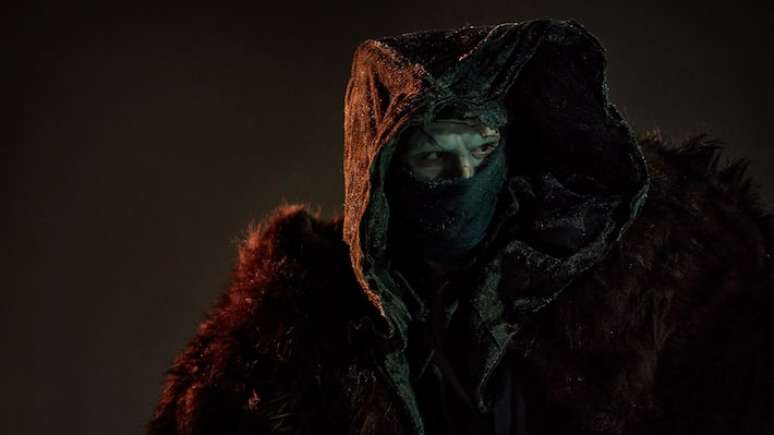“Segundo Tempo”, by Rubens Rewald, tells the story of children of German parents who return to their father’s land in search of identity, in a portrait of the current Brazilian diaspora. Born in São Paulo, director Rubens Rewald knows the reality of immigrants well. His father, a Jew, fled Nazi Germany in 1939, first to Bolivia; later, he arrived in Brazil. His maternal grandparents, also Jewish, settled in Rio Grande do Sul when they were forced to leave Turkey. So he grew up hearing stories of those exiles.
Faced with the current Brazilian diaspora – data from Itamaraty say that there are at least 4.2 million people born in Brazil who currently live in other countries – he ended up thematizing the recurring story of descendants of Europeans returning to the lands of their ancestors. And from there Segundo Tempo was born, which won the award for best Latin American film at the Jewish Film Festival in Punta del Este, Uruguay, and opens in theaters this Thursday (16/03).
“It’s time to go back to Europe”, he comments. “A very difficult time for Brazil, with the growth of the far right, very difficult conditions for survival, few prospects… So many Brazilians are leaving.”
In the work, the parallel that Rewald ends up drawing between the humanist tragedy that was German Nazism and the dangerous rise of the far right around the world is inevitable.
“This is an important question that led me to make the film: how is this far right resurfacing in the world and in Brazil. That was the Bolsonaro phenomenon. And the Bolsonaro phenomenon continues: half the country continues to support this, this extreme right is still strong, it’s a reality. That’s why it’s important to make films like this,” he says.
DW Brasil: Itamaraty data shows that never before in history have there been so many Brazilians living outside Brazil as today. Can we say that Segundo Tempo works as a chronicle of the present time?
Rubens Rewald: One of the reasons why the film was called Segundo Tempo is precisely this: it’s time to return to Europe. A very difficult moment for Brazil, with the growth of the extreme right, very difficult conditions for survival, few prospects.
Thus, many Brazilians are leaving, mainly young people, eager for new perspectives and using their heritage to obtain passports in Portugal, in Germany itself. I see a lot of people leaving like it’s the second half of the game.
The film carries this story of immigration in reverse, of the descendants of Europeans who came to Brazil and are now returning to the old continent. How did true stories inspire the screenplay?
Yes, true stories from that ride [às raízes] inspired the screenplay. I had a very interesting experience. I had never been to Germany until 2010 when I went to the Berlin Film Festival. During this trip I spoke to an English screenwriter about my father’s story [que se mudou da Alemanha nazista para a América do Sul em 1939, com a família].
Two, three months later, he wrote to me saying I had to tell this story, which he couldn’t get out of his head. From that moment I started going to Germany often, to better understand my relationship with the country. I feel good in Germany, I feel like I was born there, it’s a cool thing. I didn’t learn the language, my father never wanted to teach me. I have not studied German. But I have a sense of belonging.
One of the film’s most emotional moments is when the elderly owner of the restaurant talks about his past in the Hitler Youth and how this was something “necessary” in that context. Do you think that this same discourse, that of belonging to an extremist movement with a certain ignorance and out of “obligation”, still today legitimizes many who support extremist regimes around the world?
I think this is perhaps the best scene in the film. And I lived it a bit. It was inspired by a real experience I had when I was researching the film and a young German told me that he had a grandfather who was educated in a Nazi school. Then we went to his house in Berlin and recorded the conversation, he said things that left my friend speechless.
These stories are very powerful and sometimes people don’t even tell their closest family members. They keep it to themselves. At that time in Germany practically everyone was a Nazi, because Hitler’s speech was very strong and in a sense he recovered the pride of being German. It was a very strong adhesion, many out of conviction, others out of fear.
A few minutes later, in the film, the character Ana says she read somewhere that Nazism was the result of the stupidity of the young and the bitterness of the old. In your opinion, would this also justify the extremist ideas that today seem to be on the increase in the world, including Brazil?
This is an important question that led me to make the film: how is this far right re-emerging in the world and in Brazil. This was the Bolsonaro phenomenon. And the Bolsonaro phenomenon continues: half of the country continues to support him, this extreme right is still strong, it is a reality.
That’s why it’s important to make films like this. For people to see that Nazism existed, that the extreme right existed and that it was extremely harmful in humanistic terms. And that we have to be very careful that it doesn’t happen again.
The need to search for identity is also the need to understand history. We have seen the horror of January 8th [quando extremistas tentaram promover um golpe contra os poderes da República brasileira]. So we know that this fascist movement is teeming and we have to be very careful.
Source: Terra
Rose James is a Gossipify movie and series reviewer known for her in-depth analysis and unique perspective on the latest releases. With a background in film studies, she provides engaging and informative reviews, and keeps readers up to date with industry trends and emerging talents.



![Un Si Grand Soleil Preview: Episode Summary for Monday, October 27, 2025 [SPOILERS] Un Si Grand Soleil Preview: Episode Summary for Monday, October 27, 2025 [SPOILERS]](https://fr.web.img4.acsta.net/img/16/ec/16ecdc89ab22d2242ca3490a29003c5c.jpg)


